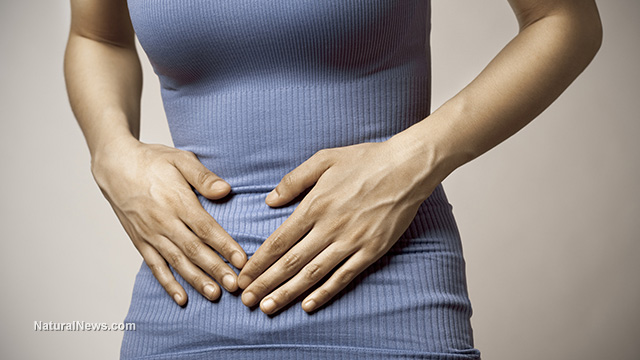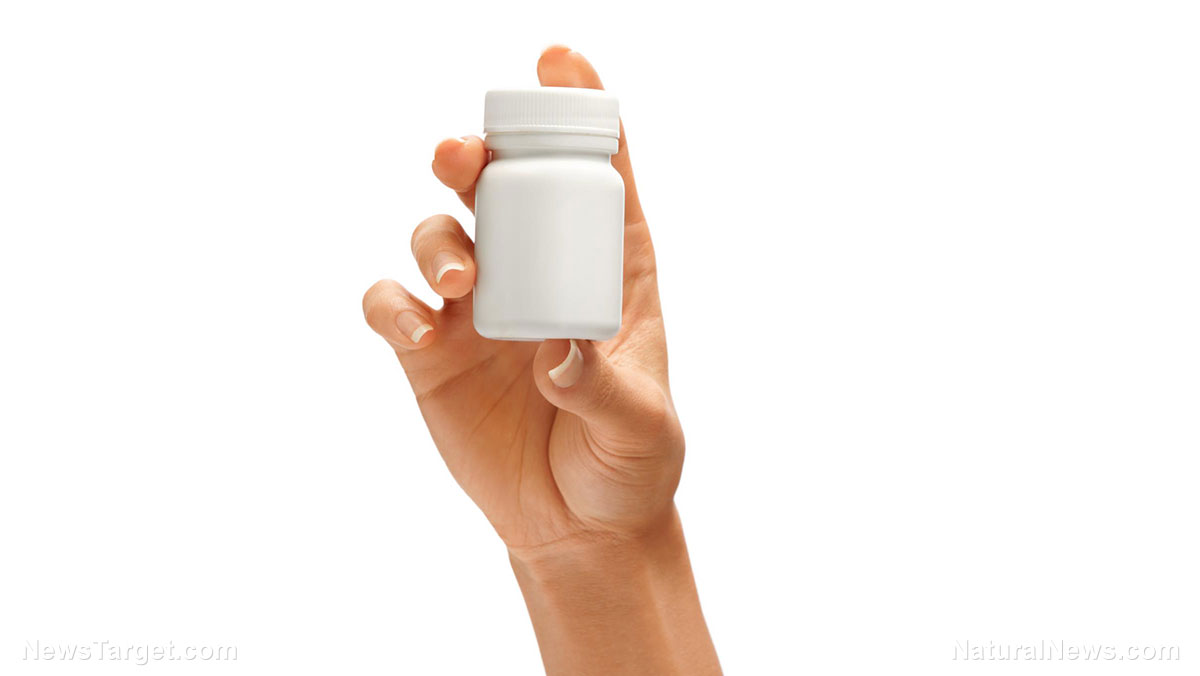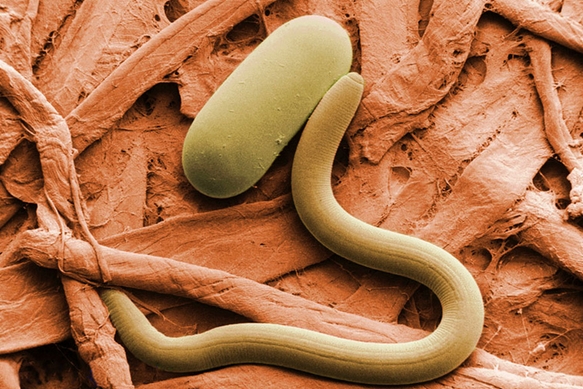Groundbreaking research links endometriosis to gut health, revolutionizing treatment approaches
05/31/2025 / By Ava Grace

- A 2023 study reveals a strong connection between endometriosis and leaky gut syndrome, where a weakened intestinal barrier triggers chronic inflammation, worsening symptoms.
- Traditional approaches (hormonal drugs, surgery) manage symptoms but don’t address root causes. Emerging research suggests gut-healing strategies (diet, probiotics) may reduce inflammation and pain.
- Nearly half of endometriosis patients show signs of leaky gut. Case studies, like Maureen’s, highlight symptom relief through anti-inflammatory diets and gut repair.
- Environmental toxins, NSAID overuse and gut microbiome imbalances may contribute to leaky gut, fueling endometriosis progression.
- Endometriosis is now recognized as a full-body inflammatory condition, emphasizing the need for holistic, root-cause treatments beyond reproductive-focused care.
For decades, endometriosis has been dismissed as merely a “bad period” problem – a painful but isolated reproductive condition. But groundbreaking research now suggests it’s far more complex, with emerging evidence linking it to gut health.
A 2023 pilot study from the University of Tennessee has uncovered a startling connection between endometriosis and leaky gut syndrome, a condition where the intestinal barrier weakens, allowing toxins to seep into the bloodstream. This discovery could revolutionize treatment approaches, moving beyond hormonal suppression and invasive surgeries to address the root causes of inflammation. (Related: “Feel G.O.O.D. Gut Health Program” on BrightU: The life-changing power of gut health.)
Endometriosis affects an estimated one in 10 women, causing tissue similar to the uterine lining to grow outside the womb – on the ovaries, bladder, bowels and even the lungs. The pain can be debilitating, often leading to years of misdiagnosis. But Dr. Shanti Mohling’s study, published in the Journal of Endometriosis and Uterine Disorders, revealed that nearly half of endometriosis patients also show signs of leaky gut, compared to none in healthy controls.
Leaky gut, or intestinal permeability, occurs when the tight junctions between intestinal cells weaken – allowing bacteria, undigested food particles and toxins to escape into the bloodstream. This triggers chronic inflammation, which researchers believe may worsen endometriosis symptoms.
Historically, endometriosis has been treated with hormonal drugs (like birth control) or surgery. While these approaches manage symptoms, they don’t cure the disease. The gut link offers a new perspective: Could healing the digestive system reduce suffering?
Endometriosis relief starts in the gut
Mohling’s research suggests that environmental toxins, overuse of non-steroidal anti-inflammatory drugs (NSAIDs), food sensitivities and gut microbiome imbalances may contribute to leaky gut – and by extension, endometriosis flare-ups. A 2023 review in Pharmaceuticals found that a healthy gut barrier relies on balanced bacteria. When disrupted, inflammation spreads, potentially fueling endometriosis progression.
This aligns with broader medical trends recognizing that chronic diseases often stem from systemic inflammation, not just localized symptoms. While excision surgery (removing lesions) remains the gold standard for severe endometriosis, experts now emphasize gut-healing strategies as complementary care:
- Anti-inflammatory foods (leafy greens, wild salmon, turmeric)
- Eliminating irritants (gluten, dairy, sugar for 4-6 weeks)
- Probiotics (kimchi, coconut yogurt)
- Stress management (yoga, mindfulness, quality sleep)
Maureen, a Pacific Northwest woman with deep-infiltrating endometriosis, found relief not just through surgery but by eliminating caffeine and processed foods, alongside prioritizing anti-inflammatory meals. While she isn’t cured, her pain is manageable and her energy has improved. “When I started healing my gut, I felt like I had a fighting chance,” she told the Epoch Times.
This research doesn’t promise a miracle diet or quick fix. Endometriosis is multifactorial, likely influenced by genetics and fetal development. But the gut connection provides a missing puzzle piece – one that empowers patients to take active steps toward reducing inflammation and reclaiming their health.
Endometriosis is more than a reproductive issue; it’s a full-body inflammatory disease. The leaky gut link underscores the importance of root-cause medicine, challenging outdated treatment paradigms. Healing the gut may not cure endometriosis, but it could break the cycle of pain for millions.
Watch Dr. Basima Williams explaining how to keep the gut healthy through her “Feel Good Gut Health” course below.
This video is from Brighteon Highlights on Brighteon.com.
More related stories:
Study: Walnuts boost gut and heart health by promoting healthy gut microbiota.
Is depression just a symptom of bad gut health? Study confirms link between gut and brain health.
Sources include:
Submit a correction >>
Tagged Under:
Cures, disease treatments, dysbiosis, endometriosis, gut health, gut microbiome, healing, health science, natural cures, natural health, remedies, reproduction, research, women's health
This article may contain statements that reflect the opinion of the author





















